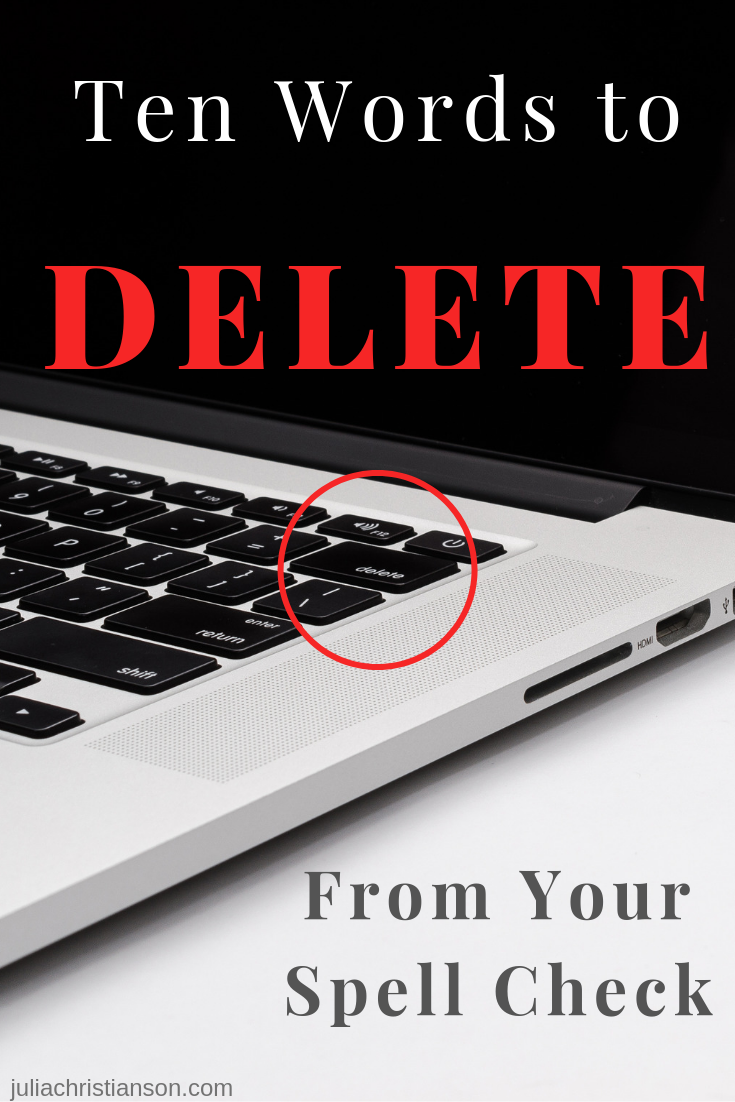Typos
Typos happen to all of us. Even the msot experience copyeditor misess one from time to tiem. But in all seriousness, typos are a significant issue in our electronics-oriented life. In a world where text messaging, blogging, posting online, email, and a host of other written communications shape how people perceive us, using exactly the word you mean to use can be critical.
The worst kind of typos are those that the spell-check does not catch, because the typo itself is a word. A quick reread of what you plan to show someone else can often catch these, but there are certain words which your brain might skip right over because it looks close enough. Dealing with the fallout of that is no fun. In that vein, here are ten words that I recommend completely removing from your computer’s dictionary. That way, if you meant to use it, there’s no issue, but if you didn’t plan to write it, it can save you a world of embarrassment.
Warning: some of these words are blatantly rude or profane. That’s why I recommend removing them, so that you only use them when you really mean to!
All of the words below are recognized by Microsoft Word. For information on how to remove a word from Microsoft Word’s dictionary, see Microsoft’s support page, which, comically, has an error like those mentioned in this article: customer instead of custom. It happens to us all!
Ten Words to Delete
Remove these ten words:
causally
It’s probable that you plan to write casually here: “She casually opened her purse.” Since both words are adverbs, even the grammar check won’t help you on this one.
cunt
Yikes. This one is just bad. I couldn’t think of a single convoluted business situation in which you might use this word, and plenty of times in which you are attempting to write count and instead type an epithet. If you remove any word from your dictionary, remove this one!
dies
Verbs end up sneaking under the spelling radar with depressing frequency. Saying to someone “He dies” instead of “he does” could certainly lead to some misunderstandings, particularly if you’re talking about a movie they haven’t seen yet. It’s better to see that squiggly red line than to have to make up for that error.
fro
This is a very common mistake that can happen when you’re writing both from and of. A fro is a great thing, but not in the wrong context!
goof
It’s easy to goof instead of doing good when the d and the f are right next to each other on the keyboard. Save yourself some goofs and remove it.
oink
This is a more rare error, but it’s undeniable that letters next to each other on the keyboard have a tendency to get hit by accident. Telling your friend that your daughter likes oink instead of pink might still lead to her to getting a certain pink present on her birthday, but why leave that to fate? Chop it.
persona
A relatively benign error, writing persona instead of person will still have people wondering if you’re talking about a generic individual or someone with a flamboyant alter ego. Better safe than sorry.
shit
It’s almost inevitable that you’ll end up writing this particular word when you are trying to write shut, shot, or shirt. Keep yourself out of some professional you-know-what and cut it out of your dictionary.
void
Cutting this particular word is a suggestion, rather than a recommendation. Void and avoid are easily switched, especially if you are trying to write a void versus avoid. It might benefit you to remove one or the other, depending on how often you use each, so you have a heads up when you are writing to pay attention to which you are using.
writhe
This is another word that would be easy to insert by accident when you’re attempting to write, well, write. This has happened to the author of this article, and saying to someone about a movie “This makes me want to write” versus “this makes me want to writhe” gives an extremely different impression.
For a helpful guide on how to create an exclusion dictionary for Microsoft Word that will show these words as misspelled, check out this useful article.
Save Yourself Pain and Embarrassment
Removing these ten words from your computer’s spell-check may mean that you see that dreaded squiggly red line more frequently than before, but hopefully it will help you to catch errors of meaning or reassure you that you wrote just exactly what you meant to type. Happy writing!
